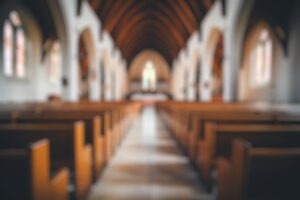
Michigan Attorney General (AG) Dana Nessel launched a comprehensive investigation into clergy abuse across all seven Catholic dioceses in the state. This investigation revealed a disturbing pattern of sexual misconduct by priests and deacons, and the Diocese of Gaylord was not exempt. Nessel recently released a report regarding the allegations of sexual abuse that occurred at the Gaylord Diocese.
The AG’s report has brought attention to the sexual abuse of victims at the hands of clergy. If a once-trusted leader of the church has abused you or a loved one, you may have a right to take legal action to recover compensation for your trauma and other damages. Contact our legal team at White Law PLLC to speak to a knowledgeable and compassionate Okemos clergy sex abuse lawyer and discuss your legal options for seeking justice against your abuser and the organizations that may have covered up the abuse.
The Background of Clergy Sex Abuse
Awareness of clergy sex abuse within the Catholic Church reached a peak in the early 2000s when an investigative reporter spotlighted numerous cases of child sexual abuse by priests. The publication also uncovered the history of religious institutions covering up sex abuse and protecting perpetrators. Instances of abuse and cover-ups have continued to be exposed and addressed in the years since.
As a result, the United States Catholic Conference of Bishops adopted the Charter for the Protection of Children and Young People in 2002. This Charter includes pledges to protect children from sexual abuse by clergy and contains goals for making the Church safe for minors. Its fundamental principles include:
- Protecting children: It emphasizes the Church’s responsibility to create a safe environment and prevent abuse.
- Healing: It acknowledges the long-term effects of clergy abuse on survivors and their families and emphasizes the Church’s commitment to providing support services and facilitating healing for survivors.
- Zero tolerance for abuse: It establishes a clear policy of zero tolerance for sexual abuse of minors by clergy and states that all allegations are to be taken seriously and investigated promptly.
- Accountability: It emphasizes the importance of accountability for clergy who commit sexual abuse and outlines procedures for investigating allegations and imposing appropriate consequences.
- Collaboration with authorities: It stresses cooperation with civil authorities, including law enforcement, when abuse allegations arise.
- Ongoing training: It recognizes the importance of continuing education for clergy, church personnel, and volunteers on preventing child sexual abuse.
- Continuous improvement: It acknowledges the need for continuous improvement in preventing and responding to sexual abuse and has been revised several times to reflect evolving best practices and legal requirements.
Your Fight Is Our Fight
AG Nessel’s Investigation into Reports of Sexual Abuse by Michigan Clergy
In 2018, the Michigan AG’s office conducted a widespread investigation into allegations of sexual abuse by the state’s seven Dioceses of the Catholic Church. The investigation had two primary purposes. These objectives were:
- To investigate whether the state could file criminal charges against those who engaged in sexual abuse or those who failed to report sexual conduct involving minors
- To determine if the Archdiocese and Dioceses were complying with their legal obligation to report sexual abuse of minors
Upon completion of its investigation into the Dioceses, the AG plans to release separate reports on each. In 2022, he released his report regarding his findings regarding the Diocese of Marquette. In January 2024, Nessel released the agency’s report concerning its findings regarding the Gaylord Diocese.
Findings of the AG’s Report of Sexual Abuse at the Gaylord Diocese
During its investigation, the AG reviewed more than 786,800 documents related to the Diocese of Gaylord. They identified 26 priests and two deacons who have served in the Gaylord Diocese with sexual abuse allegations against them. The AG determined that 14 of these priests had credible accusations of sexual abuse, and nine of them included abuse of minors.
Despite these allegations of sexual abuse, the AG has not filed criminal charges against the clergy in the Gaylord Diocese. There are several reasons for this lack of prosecution. The primary reasons are that:
- Sixteen of the 28 clergy are deceased.
- The statute of limitations expired because the majority of criminal sexual conduct against minors occurred before 2002. Before 2001, the state’s statute of limitations for criminal sexual conduct was six years from the date of the abuse or the victim’s 18th birthday.
- The victims did not want to pursue criminal charges.
We understand that you may be going through a difficult situation and we are ready to help however we can.
Legal Ramifications for Clergy Sexual Abuse
In Michigan, clergy sexual abuse can have significant legal ramifications for both the perpetrators and institutions involved. There are criminal and civil consequences. Legal aspects and potential consequences include:
- Criminal charges: Perpetrators of clergy sexual abuse may face criminal charges under Michigan law, depending on the nature of the offense and the age of the victim.
- Civil lawsuits: Survivors of clergy sexual abuse may have the option to file civil lawsuits seeking compensation for compensation in a clergy abuse case. Contact our clergy sex abuse attorneys to discuss the best course of action for obtaining justice from the perpetrator liable for your abuse and the institution responsible for failing to prevent it.
- Statutes of limitations: Michigan has statutes of limitations that restrict the timeframe within which survivors can file lawsuits or criminal charges for clergy sex abuse. Recent proposed changes to Michigan law under House Bill 4482 of 2023 seek to extend the statute of limitations for survivors to file civil lawsuits.
- Institutional liability: If religious institutions, including dioceses, are found to have been negligent in their oversight of clergy members or if they engaged in covering up abuse allegations, they may face legal liability for clergy sexual abuse.
- Prosecutorial investigations: Law enforcement agencies may conduct investigations into allegations of clergy abuse, as the Michigan Attorney General has with the Diocese of Gaylord, which could lead to criminal charges against perpetrators and potential charges against institutional leaders who may have been complicit in covering up your abuse.
- Regulatory oversight: Failure to comply with state and federal requirements related to reporting allegations of abuse, background checks for clergy, and compliance with child protection laws could result in legal penalties and sanctions.
You will always work directly with your attorney throughout your case.
Seek Help in Your Fight for Justice
The Gaylord Diocese is not the only diocese determined to have clergy who participated in the sexual assault of minors. If you are a victim of sexual abuse involving the church, contact our clergy sex abuse lawyers at White Law PLLC to schedule a free consultation. We are experienced in handling cases involving clergy misconduct, sexual assault, and institutional liability and can work to get you justice.
We’re Experienced. We Care.
We Exceed Client Expectations.

